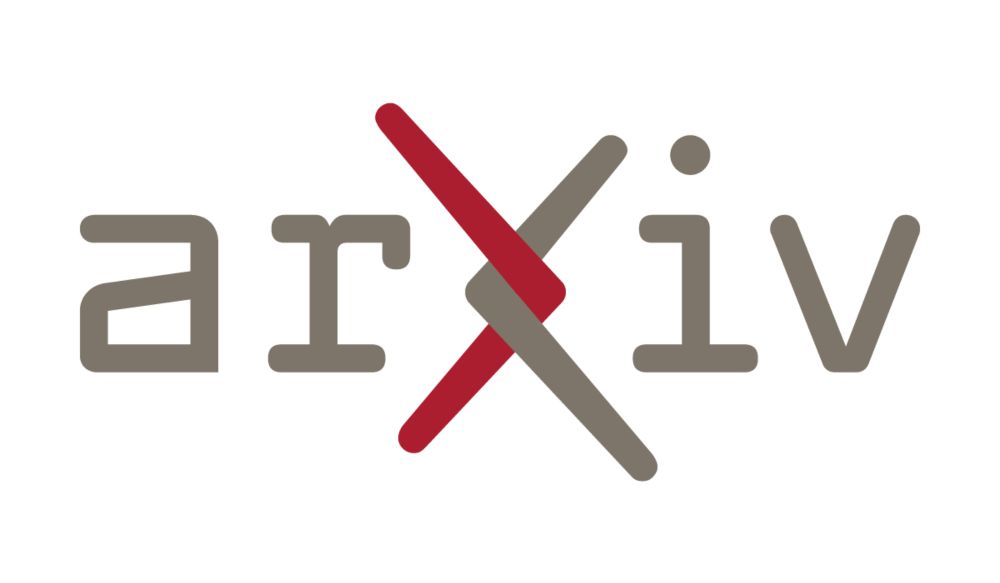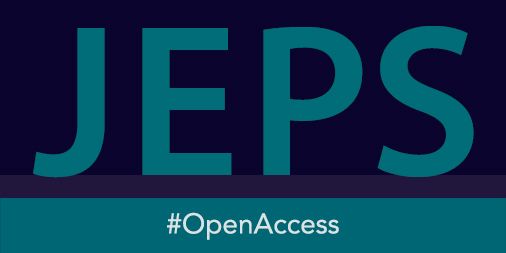
giulianoformisano.github.io
I tried to prove the ECB is politically responsive… and failed.
But the failure turned into the discovery. Read more:
Substack post: open.substack.com/pub/laurenle...
Preprint: osf.io/gxrtc/files/...

I tried to prove the ECB is politically responsive… and failed.
But the failure turned into the discovery. Read more:
Substack post: open.substack.com/pub/laurenle...
Preprint: osf.io/gxrtc/files/...

Examining news on 7 platforms:
1)Right-leaning platforms=lower quality news
2)Echo-platforms: Right-leaning news gets more engagement on right-leaning platforms, vice-versa for left-leaning
3)Low-quality news gets more engagement EVERYWHERE - even BlueSky!
www.pnas.org/doi/10.1073/...

Examining news on 7 platforms:
1)Right-leaning platforms=lower quality news
2)Echo-platforms: Right-leaning news gets more engagement on right-leaning platforms, vice-versa for left-leaning
3)Low-quality news gets more engagement EVERYWHERE - even BlueSky!
www.pnas.org/doi/10.1073/...
link.springer.com/article/10.1...

link.springer.com/article/10.1...




But... can they? We don’t actually know.
In our new study, we develop a Computational Turing Test.
And our findings are striking:
LLMs may be far less human-like than we think.🧵

But... can they? We don’t actually know.
In our new study, we develop a Computational Turing Test.
And our findings are striking:
LLMs may be far less human-like than we think.🧵
www.nuffield.ox.ac.uk/the-college/...

www.nuffield.ox.ac.uk/the-college/...

Proud to have Blue Rose do ad testing for the Zohran IE!
x.com/alimortell/s...

Proud to have Blue Rose do ad testing for the Zohran IE!
x.com/alimortell/s...

doi.org/10.1086/739405
[1/5]

doi.org/10.1086/739405
[1/5]
Our team has got TWO open DPhil (PhD) positions in #datascience + #health here at @oxforddemsci.bsky.social for 2026🎉! See for details:
1️⃣ 👉 crahal.com/HDS_2026.html
2️⃣ 👉 crahal.com/pophealth_2026.html
Please share and help us to find our future teammates ❤️!
Our team has got TWO open DPhil (PhD) positions in #datascience + #health here at @oxforddemsci.bsky.social for 2026🎉! See for details:
1️⃣ 👉 crahal.com/HDS_2026.html
2️⃣ 👉 crahal.com/pophealth_2026.html
Please share and help us to find our future teammates ❤️!
Don't forget to submit your paper or panel proposal to the European Political Science Society @epssnet.bsky.social 2026 conference - just one week to go before the deadline: epssnet.org/belfast-2026...
Don't forget to submit your paper or panel proposal to the European Political Science Society @epssnet.bsky.social 2026 conference - just one week to go before the deadline: epssnet.org/belfast-2026...
⚡ We show that personalization of content moderation models can be harmful and perpetuate hate speech, defeating the purpose of the system and hurting the community.
We argue that personalized moderation needs boundaries, and we show how to build them.
⚡ We show that personalization of content moderation models can be harmful and perpetuate hate speech, defeating the purpose of the system and hurting the community.
We argue that personalized moderation needs boundaries, and we show how to build them.

We're looking for a *Full or Associate Professor of Political Science and Public Policy* to join the LSE School of Public Policy
Please share!
jobs.lse.ac.uk/Vacancies/W/...
We're looking for a *Full or Associate Professor of Political Science and Public Policy* to join the LSE School of Public Policy
Please share!
jobs.lse.ac.uk/Vacancies/W/...
Please do share details within your network; I think these projects are pretty cool!
Our team has got TWO open DPhil (PhD) positions in #datascience + #health here at @oxforddemsci.bsky.social for 2026🎉! See for details:
1️⃣ 👉 crahal.com/HDS_2026.html
2️⃣ 👉 crahal.com/pophealth_2026.html
Please share and help us to find our future teammates ❤️!
Please do share details within your network; I think these projects are pretty cool!
Sexually explicit deepfakes 🤖 hurt politicians on almost all fronts...
This is the case ***even*** when people realized the image wasn't real 🤯, and effects are stronger for male 👨 than female 👩 candidates
Link to preprint: tinyurl.com/pnnkhfks


Sexually explicit deepfakes 🤖 hurt politicians on almost all fronts...
This is the case ***even*** when people realized the image wasn't real 🤯, and effects are stronger for male 👨 than female 👩 candidates
Link to preprint: tinyurl.com/pnnkhfks
In Liverpool for Labour Conference...
Starmer is concentrating on Reform but Labour shouldn't mistake their threat on the right, even in Leave voting heartlands.
Our new analysis w/ @martamiori.bsky.social explains:
politicscentre.nuffield.ox.ac.uk/news-and-eve...

In Liverpool for Labour Conference...
Starmer is concentrating on Reform but Labour shouldn't mistake their threat on the right, even in Leave voting heartlands.
Our new analysis w/ @martamiori.bsky.social explains:
politicscentre.nuffield.ox.ac.uk/news-and-eve...
Detecting Group Mentions in Political Rhetoric A Supervised Learning Approach - cup.org/45WZppQ
- @haukelicht.bsky.social & @ronjasczepanski.bsky.social
#OpenAccess

Our new WP shows the answer is no:
-Millions of users post in languages with zero moderators
-Where mods exist, mod count relative to content volume varies widely across langs
osf.io/amfws

Our new WP shows the answer is no:
-Millions of users post in languages with zero moderators
-Where mods exist, mod count relative to content volume varies widely across langs
osf.io/amfws
📌 Full-time, 2-year postdoctoral position
📆 Start Date: Dec 1, (or by agreement)
📍 Location: Uppsala
⏳ Apply by: Oct 1
Read more: www.uu.se/en/about-uu/...

📌 Full-time, 2-year postdoctoral position
📆 Start Date: Dec 1, (or by agreement)
📍 Location: Uppsala
⏳ Apply by: Oct 1
Read more: www.uu.se/en/about-uu/...
It still became a polarization machine.
Then we tried six interventions to fix social media.
The results were… not what we expected.
arxiv.org/abs/2508.03385

It still became a polarization machine.
Then we tried six interventions to fix social media.
The results were… not what we expected.
arxiv.org/abs/2508.03385
Big thanks to my wonderful co-authors: @deeliu97.bsky.social, Niyati, @computermacgyver.bsky.social, Sam, Victor, and @paul-rottger.bsky.social!
Thread 👇and data avail at huggingface.co/datasets/man...

Big thanks to my wonderful co-authors: @deeliu97.bsky.social, Niyati, @computermacgyver.bsky.social, Sam, Victor, and @paul-rottger.bsky.social!
Thread 👇and data avail at huggingface.co/datasets/man...
We test a number of experimental treatments aimed at strengthening social norms against radical-right support, but find mostly null results.
1/3
Re-Stigmatizing the Radical Right: A One-Way Street? - cup.org/45s4Huh
- @laiabalcells.bsky.social, @sergisme.bsky.social, @valentimvicente.bsky.social & Ethan vanderWilden
#FirstView

We test a number of experimental treatments aimed at strengthening social norms against radical-right support, but find mostly null results.
1/3

